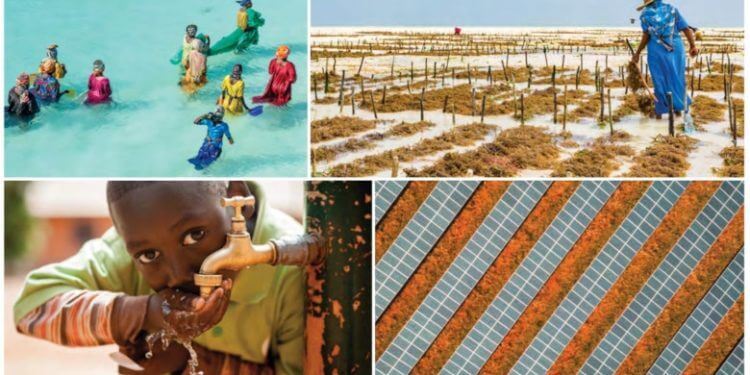On 15th September 2020, the World Bank released the Next Generation Africa Climate Business Plan (NG-ACBP), which sets out a blueprint to help Sub-Saharan African economies achieve low carbon and climate-resilient outcomes.
The Plan calls for countries to seize the opportunity to scale-up climate resilience to grow their economies and reduce poverty, redouble efforts to increase energy access across the region, and take advantage of sustainable and innovative approaches to leapfrog into greener development pathways. Without rapid deployment of inclusive, climate-informed development, 43 million additional people could be pushed below the poverty line by 2030 in Sub-Saharan Africa.
As the largest financier of climate action in Africa, the World Bank will use this new Climate Plan to build on a strong track record under the original plan in which the Bank supported 346 projects with more than US$33 billion in World Bank financing over the past six years.
“The climate challenge cuts across every priority – poverty reduction, agriculture, job creation, women’s empowerment, fragility, and more,” says Ousmane Diagana, World Bank Vice President for West and Central Africa. “Countries therefore have to tackle it in multiple ways, including byhelping cities develop in clean ways, making climate smart agriculture practices the norm, improving clean, green, and affordable energy, and putting people and communities at the forefront in order to improve lives and protect the future.”
Over the next six years (2021–26), the World Bank will focus on five key areas in Africa— food security, clean energy, green and resilient cities, environmental stability, and climate shocks— that emphasize the interrelatedness of climate risks and opportunities. The Plan sets ambitious goals that push the boundaries of sustainable development in Africa, including training 10 million farmers on climate-smart agricultural approaches, expanding integrated landscape management over 60 million hectares in 20 countries, increasing renewable energy generation capacity from 28GW to 38GW to increase access to clean electricity, and outfitting at least 3O cities with low carbon and compact urban planning approaches.
“Africa’s main challenge is to adapt to climate change by investing in more resilient agriculture and food systems, building infrastructure that resists extreme weather events, protecting its coastal cities, and enhancing disaster preparedness systems,” says Hafez Ghanem, World Bank Vice President for East and Southern Africa. At the same time, green technologies provide an opportunity for growth and job creation. This is especially true in the energy sector where renewables have become a source of clean and inexpensive energy, bringing the goal of universal access to electricity within reach.”
The World Bank recommends that Sub-Saharan African countries enact policy reforms that recognize the realities of climate change, in order to strengthen recovery and promote long-term growth. This includes addressing the sizable infrastructure gap in a green and resilient manner, using less carbon-intensive materials and technologies while creating more competitive job opportunities.
The development of the Plan was led by Kanta Kumari Rigaud, Lead Environment Specialist Rigaud, who underscores that ramping up climate action on both the resilience and clean energy fronts is critical to address climate change and poverty in Sub-Saharan Africa, as the window of opportunity to counter the climate crisis is rapidly narrowing.
This Plan will be rolled out amid the COVID-19 pandemic, recognizing that climate action and green recovery will be key priorities as countries work to build back better from one of the biggest setbacks in the region’s development in the last 25 years.
Source: The World Bank




